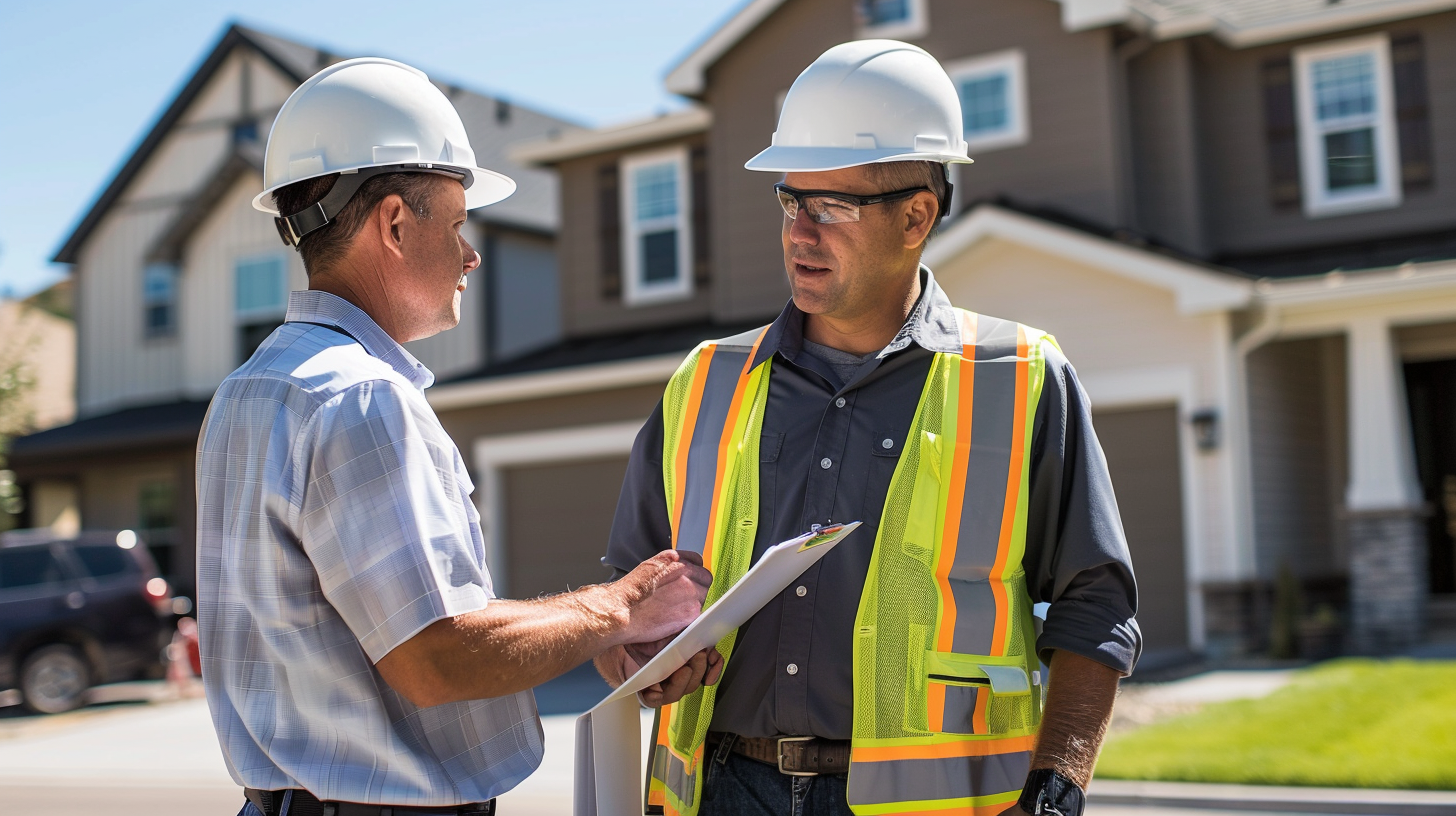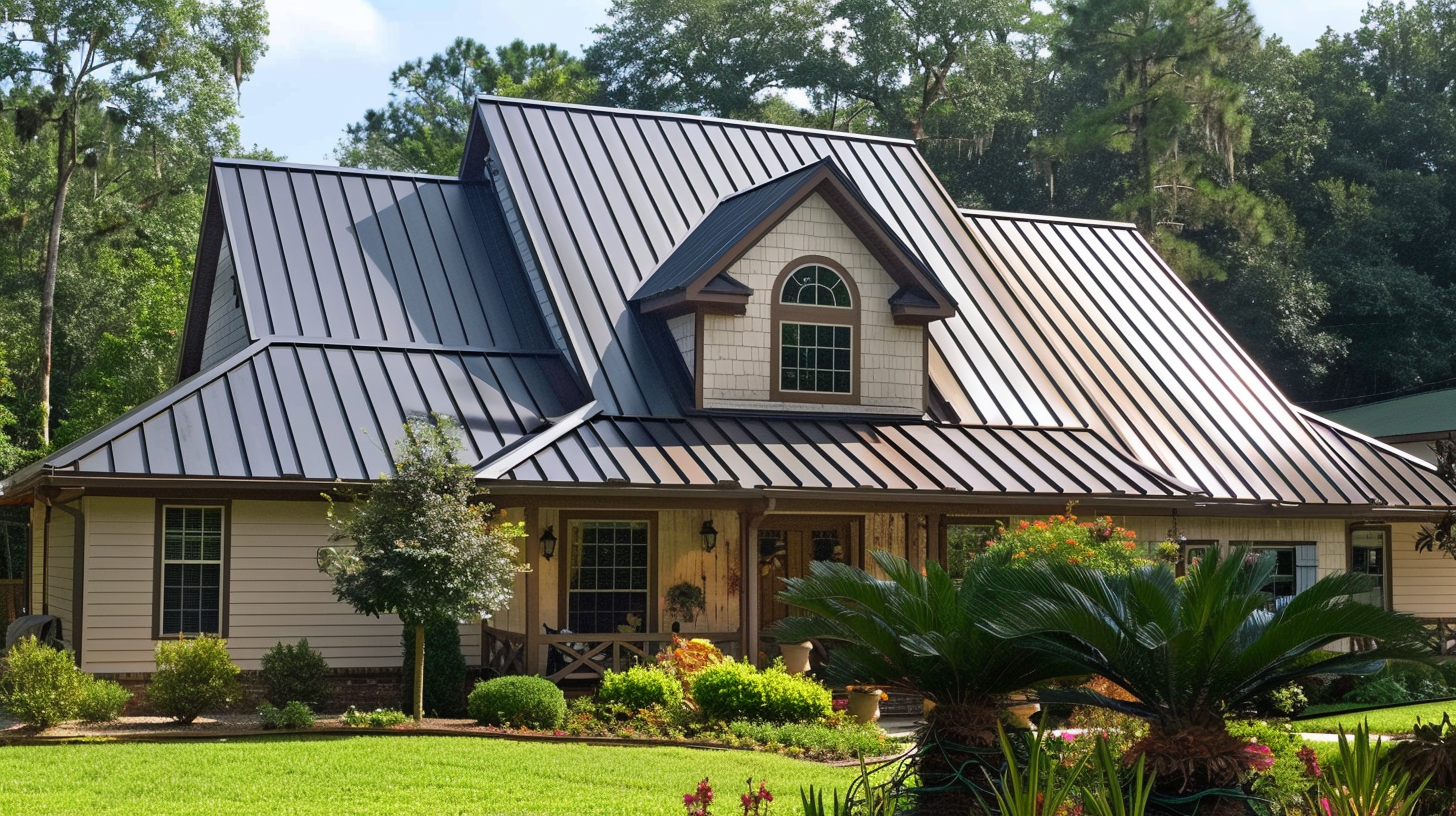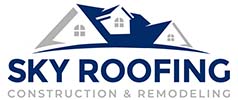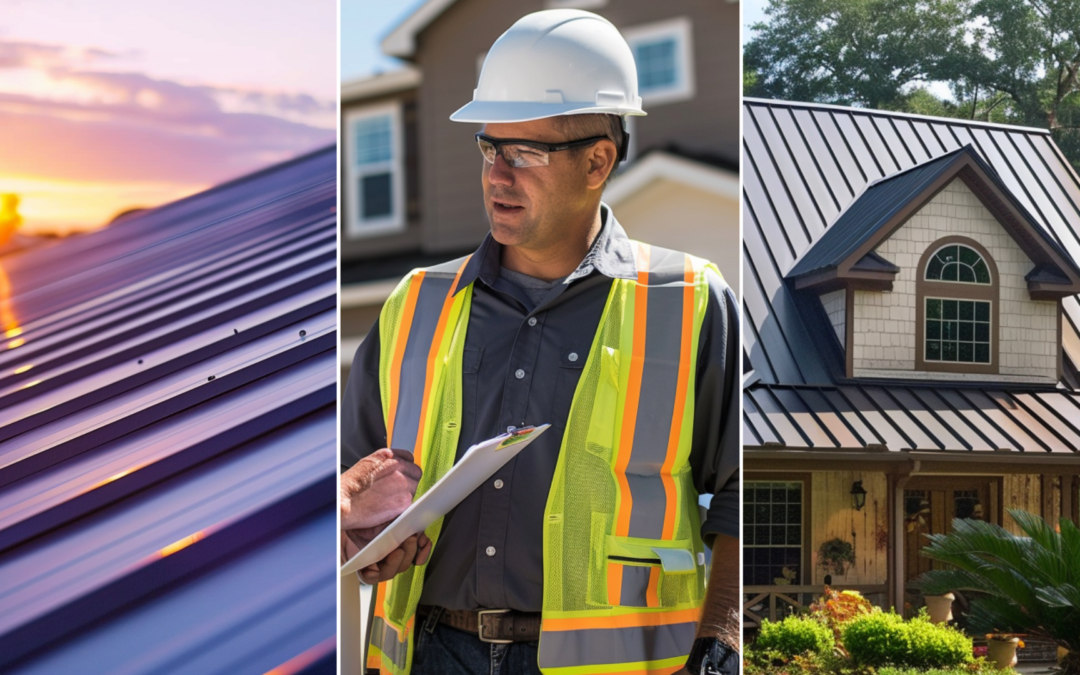Definition of Licensing in Roofing Industry
A licensed roofer demonstrates compliance with industry standards and assures customers that the person or company they hire has the necessary skills and qualifications to perform the job effectively and meet all legal and safety requirements. Licensing in the roofing industry refers to obtaining a formal authorization or certification that allows individuals or companies to provide roofing services legally. This license proves that the person or organization has met specific requirements, such as completing necessary training, passing exams, and demonstrating the knowledge and skills required to ensure the safety and quality of roofing work. By obtaining a roofing license, individuals can demonstrate their expertise and commitment to the industry, gaining a competitive advantage in the market. A roofing license also assures customers that the person or company they hire has the necessary skills and qualifications to perform the job effectively and meet all legal and safety requirements. Licensing in the roofing industry contributes to protecting the interests of both customers and legitimate roofing professionals, ensuring that only qualified individuals or organizations operate in the field.

Licensed - Licensing Requirements - Sky Roofing Construction & Remodeling
Licensing Requirements for Roofing Contractors
Becoming a licensed roofing contractor is an essential step for professionals in the roofing industry. From meeting specific educational and training requirements to obtaining a roofing license, fulfilling the necessary paperwork, and passing exams, becoming licensed offers numerous advantages and benefits for roofing contractors. Whether you are just starting your career in the roofing industry or looking to enhance your professional credibility and expand your business opportunities, understanding the licensing requirements is crucial for success. A roofing license signifies that you are a reputable roofing contractor, demonstrating your commitment to professionalism and adherence to industry standards. This credential enhances your marketability and ensures that you have undergone proper roofing training and hold a contractor license, distinguishing you from unlicensed contractors.
Examination and Certification Processes
The examination and certification processes for obtaining a roofing license are crucial steps for individuals interested in the roofing industry. To begin, aspiring roofers must first register for the prelicensing exam and get the necessary study materials to prepare for the test, which may include the trade exam and remodeler exam. The examination typically consists of multiple-choice questions that assess knowledge and skills related to roofing practices, types of roofs, and bond requirements. Individuals must meet the designated passing criteria for the licensing examination, including achieving a particular score or demonstrating proficiency in prerequisite experience and specific areas. Certification is essential to validate one’s knowledge and skills in the roofing industry, as it provides credibility and reassurance to clients and employers. By obtaining a roofing license through the examination and certification processes, individuals can enhance their professional reputation and gain a competitive edge in the field.
Renewal and Compliance Obligations
Renewal and compliance obligations are essential for maintaining a roofing license. It is crucial to understand the specific requirements and procedures that must be followed to fulfill these obligations. Timely renewal of licenses, certifications, and permits, including the licensing process and certification examination, is necessary to ensure that one continues to operate legally in the roofing industry. Failure to renew these credentials on time can result in penalties or even the suspension of the license. Additionally, it is vital to comply with applicable laws and regulations governing the roofing industry, building construction, and adequate roofing insurance. This includes adhering to safety regulations, building codes, and other legal requirements relevant to customers, residential or commercial projects, and construction contractors. By staying in compliance, reputable roofers and roofer-specific license holders can demonstrate their commitment to quality work and the safety of their clients and employees while avoiding additional costs.

Licensed - Benefits of Hiring a Licensed - Sky Roofing Construction & Remodeling
Benefits of Hiring a Licensed Roofing Company
When hiring a roofing company for your home or business, there are numerous benefits to choosing a licensed contractor. A roofing license demonstrates that the contractor has met the requirements for roofers and the qualifications to perform roofing work, including registration for roofers and a separate license. Still, it also provides assurance and peace of mind for the homeowner and the contractor. Hiring a licensed roofing company ensures that you work with reputable roofers with the knowledge and expertise to complete the job safely and effectively. In addition, licensed contractors are more likely to carry proper insurance coverage, protecting you from any potential liability in case of accidents or damages. Furthermore, licensed roofing companies are typically held to higher standards and regulations, ensuring they adhere to the industry’s best practices and codes. By hiring a licensed roofing company, you can trust that your roofing project will be handled professionally, efficiently, and with the utmost quality, providing long-lasting protection for your property.
Enhanced Quality Assurance
Hiring a licensed roofing company significantly enhances quality assurance for homeowners and businesses. When you choose a licensed professional in the roofing industry, whether residential roofing contractors or commercial roofing contractors for larger roofing projects or roofing jobs, you can expect several benefits; firstly, their quality is of superior quality, ensuring that your roof is durable and long-lasting. Additionally, licensed roofers strictly adhere to safety standards, minimizing the risk of accidents and injuries during roofing. These professionals are also well-versed in regulatory compliance, guaranteeing that all necessary permits and inspections are in place. Lastly, choosing licensed roofers with supervisory work experience provides consumer protection, as they must follow ethical business practices and provide warranties for their work. In conclusion, opting for certified professionals in the roofing industry brings numerous advantages, including enhanced quality, adherence to safety standards, regulatory compliance, and consumer protection.
Compliance with Building Codes
Compliance with building codes is paramount when considering the advantages of hiring a licensed roofing company. Licensed roofers are critical in ensuring adherence to local regulations, including fire safety regulations, structural requirements, electrical codes, plumbing codes, and accessibility standards. By following these building codes, residential contractors and commercial property owners benefit from enhanced safety, quality, and legal compliance in roofing projects. Licensed roofers also protect against issues with unlicensed contractors, ensuring that the roofing project meets all requirements set by the board of licensing contractors. This not only safeguards the well-being of the occupants but also prevents potential costly legal issues. Therefore, obtaining a roofing license and certification for roofing is essential for individuals interested in pursuing a career in the roofing industry to guarantee compliance with building codes and provide customers with peace of mind.
How to Verify a Roofing Contractor’s License
Verifying a roofing contractor’s license is crucial when hiring them to ensure their qualifications and competency. By confirming the legitimacy of their license, property owners can have peace of mind knowing they are working with a professional who meets the requirements and has the expertise to perform the job effectively and safely.
1. Research Requirements:
Before verifying a roofing contractor’s license, it is essential first to understand the licensing requirements in your specific jurisdiction. Different states or countries may have varying regulations and qualifications for roofing contractors. By familiarizing yourself with these requirements, you can ensure that you seek the appropriate license and certifications.
2. Check License Documentation:
Once you have identified the necessary licensing requirements, the next step is to ask the roofing contractor for their license documentation. This documentation may include their license number, which can be used to verify their license’s validity.
3. Contact the Licensing Authority:
To verify a roofing contractor’s license, it is crucial to contact the licensing authority responsible for issuing and regulating permits in your area. This authority will be able to confirm the contractor’s license status, including its validity, expiration date, and any disciplinary actions against the contractor.
4. Review Insurance Coverage:
In addition to verifying the license, reviewing the roofing contractor’s insurance coverage is essential. A reliable contractor should have general liability insurance and worker’s compensation insurance to protect against potential accidents or damages during the project.
5. Seek References and Reviews:
Lastly, seeking references and reviews from past clients is always a good idea. This can provide valuable insights into the roofing contractor’s previous work, professionalism, and overall customer satisfaction.
By following these steps to verify a roofing contractor’s license, property owners can ensure they are hiring a skilled and qualified professional to handle their roofing project. This additional diligence will help protect their investment and provide them with peace of mind throughout the process.
Understanding License Types and Requirements
Understanding License Types and Requirements is essential when hiring a roofing contractor. There are various types of licenses for roofers available, each with its specific application requirements. These include experience, exam passing, and meeting specific educational criteria. Consumers should follow a step-by-step guide to verify a roofing contractor’s license. This may involve application processing, contacting the appropriate licensing board, checking for complaints or disciplinary actions, confirming the license is active and in good standing, and requesting proof of insurance. Hiring licensed professionals is essential to ensure the contractor has completed the application process and met the necessary qualifications to perform the job safely and effectively. Additionally, complying with local regulations is crucial to avoid fines or legal issues.
By understanding license types and requirements and hiring licensed professionals, consumers can make informed decisions and protect their investments.
Red Flags to Watch for During License Verification
When verifying a roofing license, one must be aware of certain red flags that may indicate potential issues. These red flags include expired licenses, which could imply that the qualified roofer no longer complies with state regulations. Disciplinary actions and revoked licenses are warning signs suggesting that the licensee has violated rules or engaged in unprofessional conduct. Fraudulent documents related to roof installation are another red flag, as they indicate dishonesty or deception. Additionally, unresolved property damage claims against the licensee raise concerns about their performance or customer satisfaction. These red flags should be carefully considered during the license verification process to ensure that a residential property roofing professional is legitimate and trustworthy.

Licensed - Importance of Choosing a Licensed Roofer - Sky Roofing Construction & Remodeling
Importance of Choosing a Licensed Roofer
Choosing a roofer license is of utmost importance for roofing projects. A licensed roofer ensures that the job is performed by professional contractors professionally and competently, providing peace of mind to homeowners. Hiring an unlicensed roofer can result in subpar artistry and potential legal issues. From ensuring decades of protection and compliance with building codes to accessing insurance coverage and warranties, being licensed in the residential specialty contractors’ roofing industry offers numerous advantages.
Ensuring Quality Workmanship and Professionalism
Ensuring quality artistry and professionalism in roofing requires following certain best practices. Attention to detail is crucial, as it ensures that every aspect of the roofing project is carefully executed. Adhering to industry standards is also essential, as it guarantees that the work meets the required level of quality and safety. Regular training is necessary for keeping up-to-date with new techniques and technologies, enabling roofers to deliver their best work. Continuous communication with clients, suppliers, and team members is critical for a smooth and efficient workflow. It allows any concerns, changes, or updates to be addressed promptly. Frequent inspections throughout the project ensure that any issues or mistakes are identified and resolved promptly, ensuring the overall quality of the work. By following these steps and best practices, roofing professionals can maintain and improve the quality of their work, enhancing their reputation and customer satisfaction.
Protection Against Liability and Risk
Obtaining a roofing license is crucial in protecting against liability and mitigating risk when selecting a potential roofing contractor. By requiring physical copies of a permit, authorities ensure that roofers meet the necessary standards and regulations to operate in the residential building contractors industry, reducing the chances of subpar artistry or safety hazards. Hiring a licensed roofer gives consumers peace of mind, knowing that their contractor has proof of completion, has undergone rigorous training, and possesses the required expertise. In case of disputes or unforeseen issues, licensed roofers offer legal advice, as consumers can file complaints or seek compensation through the contractor licensing board. This protects consumers from potential financial losses and holds the roofer accountable for any negligence or damages, maintaining public confidence in reputable companies.
Choose Licensed Excellence with Sky Roofing Construction & Remodeling
As you start your roofing project, remember the importance of hiring a licensed professional. Licensed roofers like those at Sky Roofing Construction & Remodeling (
https://skyroofingconstructiontx.com) uphold industry standards, ensuring quality, safety, and compliance with regulations. Whether you need repairs, renovations, or a new installation, our licensed experts are here to serve you with expertise and dedication. Contact (210) 942-9797 to schedule your consultation and experience the difference licensed professionalism makes in roofing.




